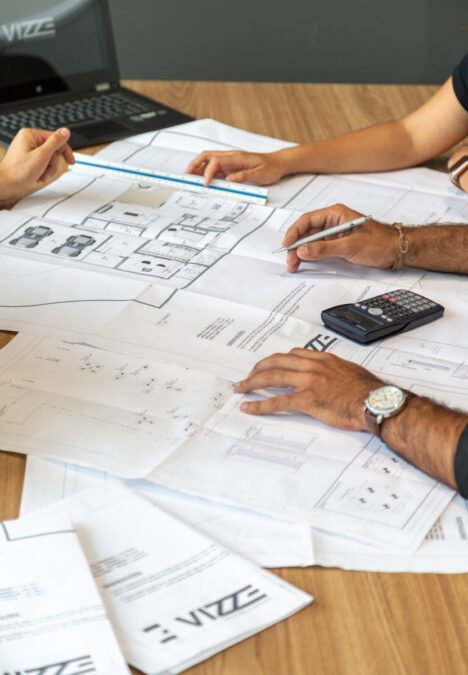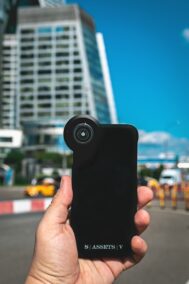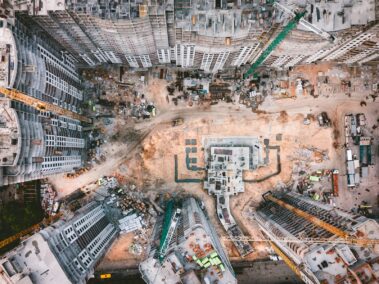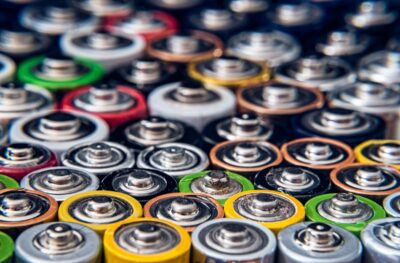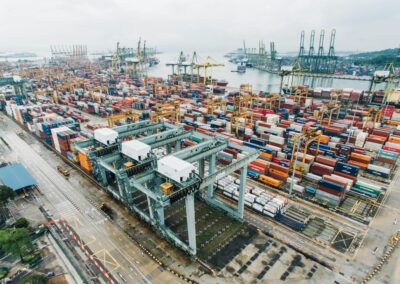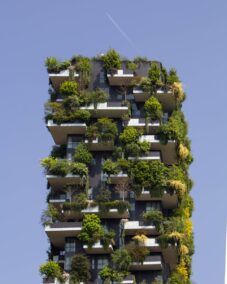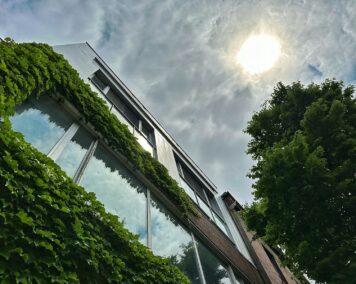Leveraging Smart Technologies for Sustainable Urban Development
Introduction to Smart Technologies in Urban Planning
The integration of smart technologies in urban planning has become a pivotal factor in driving energy efficiency and sustainability across major cities globally, particularly in forward-thinking regions like Saudi Arabia and the UAE. The cities of Riyadh and Dubai are at the forefront of this transformation, showcasing how innovative solutions can reshape urban environments. By leveraging technologies such as Artificial Intelligence (AI), Blockchain, and the Metaverse, these cities are setting new benchmarks for sustainable development.
In Riyadh, the application of AI-driven data analytics is optimizing traffic flow, reducing energy consumption, and enhancing overall urban mobility. This smart approach to city planning not only minimizes carbon footprints but also improves the quality of life for residents. Similarly, Dubai is employing blockchain technology to streamline and secure urban transactions, from property deals to municipal services. These advancements demonstrate a commitment to sustainable urban development that other cities can emulate.
Moreover, the Metaverse offers a virtual platform for urban planners to simulate and visualize the impact of new projects before implementation. This forward-thinking approach allows for more informed decision-making and the anticipation of potential sustainability challenges. As such, the incorporation of smart technologies in urban planning is not just a trend but a fundamental shift towards a more sustainable and energy-efficient future.
Case Study: Riyadh’s Energy-Efficient Initiatives
Riyadh, the capital of Saudi Arabia, serves as a prime example of how smart technologies are revolutionizing urban planning. The city has implemented a series of initiatives aimed at enhancing energy efficiency and sustainability. One notable project is the King Abdullah Financial District (KAFD), which incorporates advanced energy management systems to monitor and optimize energy use in real-time.
The use of AI in KAFD enables predictive maintenance of infrastructure, reducing energy wastage and extending the lifespan of buildings. Additionally, the district utilizes smart grid technology to balance energy loads and integrate renewable energy sources such as solar and wind power. These efforts contribute to Riyadh’s broader vision of becoming a leader in sustainable urban development.
Furthermore, Riyadh’s public transportation system has been upgraded with smart technologies to improve efficiency and reduce emissions. The introduction of AI-powered traffic management systems has significantly decreased congestion and lowered the city’s carbon footprint. By investing in these innovative solutions, Riyadh is not only enhancing its energy efficiency but also setting a precedent for other cities in the region.
Dubai’s Pioneering Use of Blockchain in Urban Planning
Dubai is renowned for its rapid adoption of cutting-edge technologies, and its use of blockchain in urban planning is no exception. The Dubai Blockchain Strategy aims to make Dubai the first city fully powered by blockchain by 2025. This ambitious initiative highlights the potential of blockchain to create more transparent, efficient, and secure urban environments.
In the realm of urban planning, blockchain technology is being used to streamline processes such as property transactions, land registry, and municipal services. By providing a decentralized and tamper-proof ledger, blockchain ensures the integrity and security of urban data. This reduces the risk of fraud and enhances trust between stakeholders, including government agencies, developers, and residents.
Moreover, blockchain’s ability to facilitate smart contracts has significant implications for urban development projects. These self-executing contracts automatically enforce the terms of agreements, reducing the need for intermediaries and speeding up project timelines. Dubai’s pioneering use of blockchain is a testament to the city’s commitment to leveraging smart technologies for sustainable urban growth.
Effective Communication and Leadership in Implementing Smart Technologies
Implementing smart technologies in urban planning requires effective communication and strong leadership. Business executives and mid-level managers play a crucial role in driving these initiatives forward. In cities like Riyadh and Dubai, executive coaching services and management consulting firms are instrumental in developing the leadership skills necessary for successful implementation.
Effective communication is essential to ensure that all stakeholders are aligned and informed about the benefits and challenges of integrating smart technologies. This includes not only government officials and developers but also residents who will be directly impacted by these changes. Transparent and inclusive communication strategies help to build trust and foster collaboration among all parties involved.
Leadership skills, such as strategic thinking and decision-making, are critical for navigating the complexities of smart technology implementation. Executives and managers must be able to anticipate potential obstacles and develop innovative solutions to address them. By investing in leadership development, cities can ensure that their urban planning initiatives are guided by competent and forward-thinking leaders.
The Role of Generative Artificial Intelligence in Urban Planning
Generative Artificial Intelligence (GAI) is emerging as a transformative tool in urban planning, offering new possibilities for creating more sustainable and energy-efficient cities. GAI algorithms can generate a multitude of design options based on specific parameters, allowing urban planners to explore a wider range of solutions and select the most optimal ones.
In Saudi Arabia and the UAE, GAI is being used to design smart buildings and infrastructure that maximize energy efficiency. For instance, GAI can optimize the orientation and layout of buildings to take advantage of natural light and reduce the need for artificial lighting. This not only lowers energy consumption but also enhances the comfort and well-being of occupants.
Additionally, GAI can simulate the environmental impact of different urban planning scenarios, providing valuable insights into how various design choices will affect energy use and sustainability. By leveraging the power of GAI, cities can make more informed decisions and achieve their sustainability goals more effectively.
Project Management and Smart Technologies
Effective project management is essential for the successful implementation of smart technologies in urban planning. This involves coordinating multiple stakeholders, managing resources, and ensuring that projects are completed on time and within budget. In cities like Riyadh and Dubai, project managers are leveraging advanced tools and methodologies to oversee complex urban development projects.
One such tool is Building Information Modeling (BIM), which provides a digital representation of the physical and functional characteristics of a project. BIM enables project managers to visualize and analyze the entire project lifecycle, from design to construction to operation. This holistic approach helps to identify potential issues early on and implement solutions that enhance energy efficiency and sustainability.
Moreover, the use of smart technologies in project management allows for real-time monitoring and data analysis. This provides project managers with the information they need to make informed decisions and optimize project performance. By embracing these technologies, cities can ensure that their urban planning initiatives are executed smoothly and achieve the desired outcomes.
Conclusion: The Future of Urban Planning in Saudi Arabia and the UAE
The future of urban planning in Saudi Arabia and the UAE is undoubtedly bright, with smart technologies playing a central role in driving energy efficiency and sustainability. The cities of Riyadh and Dubai are leading the way by integrating AI, blockchain, the Metaverse, and generative AI into their urban planning strategies. These innovations are not only transforming the urban landscape but also enhancing the quality of life for residents.
As these cities continue to evolve, it is crucial that business executives, mid-level managers, and entrepreneurs remain engaged and proactive in embracing these technologies. By fostering a culture of innovation and collaboration, Saudi Arabia and the UAE can achieve their vision of becoming global leaders in sustainable urban development.
In conclusion, the integration of smart technologies in urban planning is a game-changer for energy efficiency and sustainability. The examples of Riyadh and Dubai illustrate the immense potential of these technologies to create more resilient, efficient, and livable cities. As other cities around the world look to replicate their success, the lessons learned from Saudi Arabia and the UAE will be invaluable in shaping the future of urban development.
—
#SmartTechnologies #UrbanPlanning #EnergyEfficiency #Sustainability #SaudiArabia #UAE #Riyadh #Dubai #AI #Blockchain #Metaverse #GenerativeAI #Leadership #ProjectManagement #BusinessSuccess

